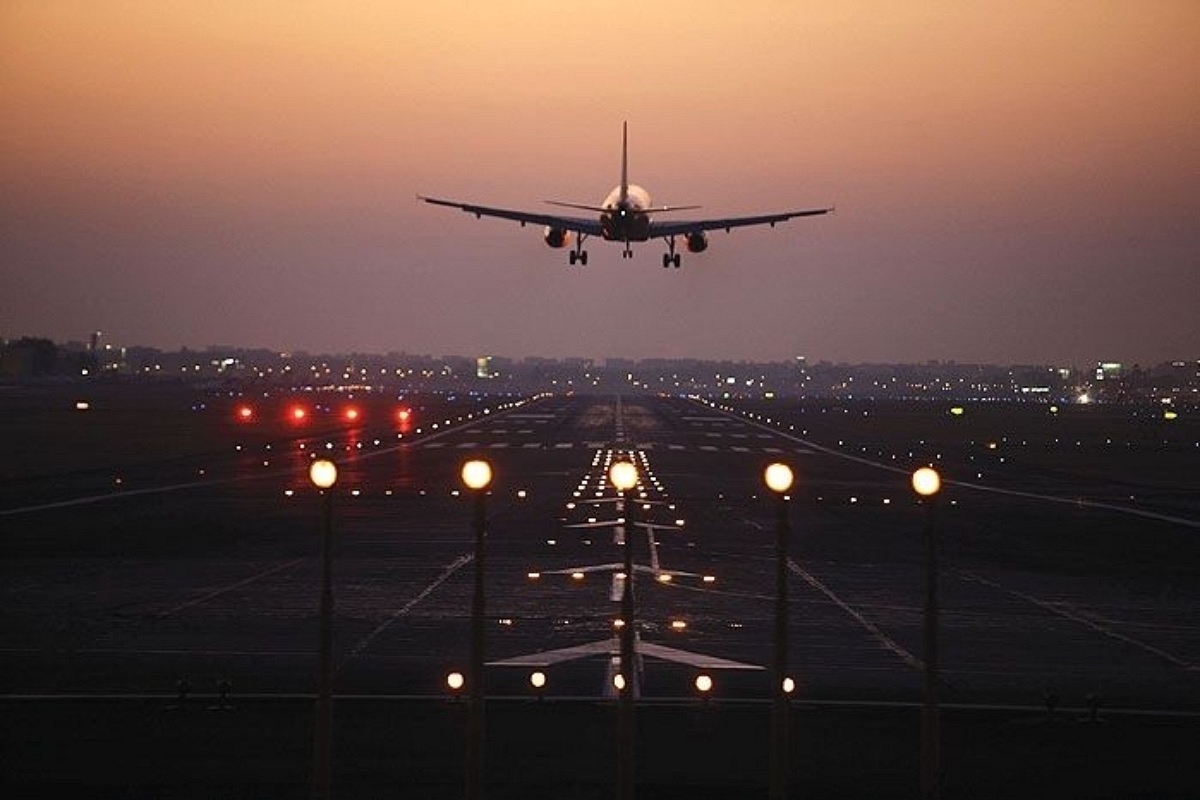Infrastructure
India Has Signed Bilateral Air Service Agreement With 116 Countries: MoS VK Singh
- A bilateral ASA is a treaty between two nations which specifies traffic rights for operation of international air services between the two countries.
- The countries with which India has signed bilateral air service agreements include those in Asia, Europe, Middle East and South America.

A plane landing at the Chhatrapati Shivaji Maharaj International Airport, Mumbai (Representative Image) (Image: Association of Private Airport Operators)
India has signed bilateral Air Service Agreement (ASA) with 116 foreign countries. This information was given by the Minister of State for Civil Aviation VK Singh in a written reply to a question in Rajya Sabha on Monday (1 August).
The countries with which India has signed bilateral air service agreements include those in Asia, Europe, Middle East and South America such as USA, Pakistan, UK, Iran, Afghanistan and China.
Bilateral Air Service Agreements
A bilateral air service agreement or air transport agreement (ATA) is a treaty between two nations which specifies traffic rights for operation of international air services between the two countries.
Most bilaterals had evolved after the Second World War when 54 nations convened in Chicago and agreed on a set of rules. These rules are now often referred to as the Chicago Convention.
One of the first air service agreements was between the United States and the United Kingdom. Signed in 1946, named as Bermuda agreement- it defined trans-Atlantic routes and which airports and seaports flights could be operated from; defined where these flights could stop; and also defined what fares could be charged on these routes.
Interestingly, most bilateral air-service agreements to the present day have evolved from the Bermuda agreement.
In the case of India, the oldest bilaterals were with the UK and South East Asian nations, namely Thailand, Hong Kong, Singapore and Japan.
How Do ASAs Work?
The ASAs are concluded bilaterally, usually on the basis of reciprocity and fair/equal opportunity, and provide the legal framework for scheduled air services between two countries.
Under these ASAs, traffic rights and capacity entitlements are exchanged between the countries on the basis of market requirements. The ASAs clearly specify the “entitlements” of the designated airline(s) of both countries in terms of frequency of operations, number of seats, points of call etc.
Once such an agreement is signed, each country is free to allocate the bilateral rights to its respective airlines. In India, the government owns these entitlements and subsequently allocates them to an airline upon request.
Even after such flying rights are allocated to an airline, it must have slots at both the airports in order to start flight operations. A slot is a date and time at which an airline’s aircraft is permitted to depart or arrive at an airport. The slots are allocated by a committee that consists of the Civil Aviation Ministry and DGCA officials, airport operators and airlines, among others.
More Point of Calls
Currently, Indian designated carriers are free to mount scheduled operations to/from any international airport, under the ambit of bilateral ASAs concluded by India with foreign countries.
However, any designated foreign airline can operate to/from a point in India if it is designated as a point of call in the ASA signed between India and the country which has designated the airline.
It essentially means that Indian-designated carriers are free to mount operations from any city but a foreign carrier is not, which creates a demand-supply gap which can impact prices.
The travel industry has been urging the government for quite some time that foreign carriers be allowed to operate from cities other than metro airports.
The government in its reply in Rajya Sabha said that, due to significant imbalance in the number of points of call in favour of foreign carriers, it is not granting any non-metro airport as a new point of call to any foreign carrier for the purpose of operating passenger services.
Introducing ElectionsHQ + 50 Ground Reports Project
The 2024 elections might seem easy to guess, but there are some important questions that shouldn't be missed.
Do freebies still sway voters? Do people prioritise infrastructure when voting? How will Punjab vote?
The answers to these questions provide great insights into where we, as a country, are headed in the years to come.
Swarajya is starting a project with an aim to do 50 solid ground stories and a smart commentary service on WhatsApp, a one-of-a-kind. We'd love your support during this election season.
Click below to contribute.
Latest